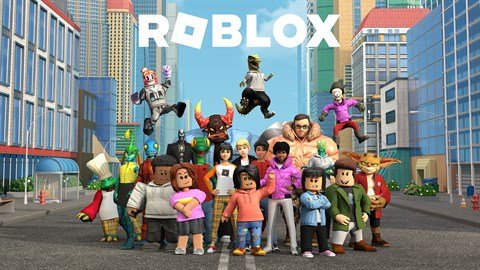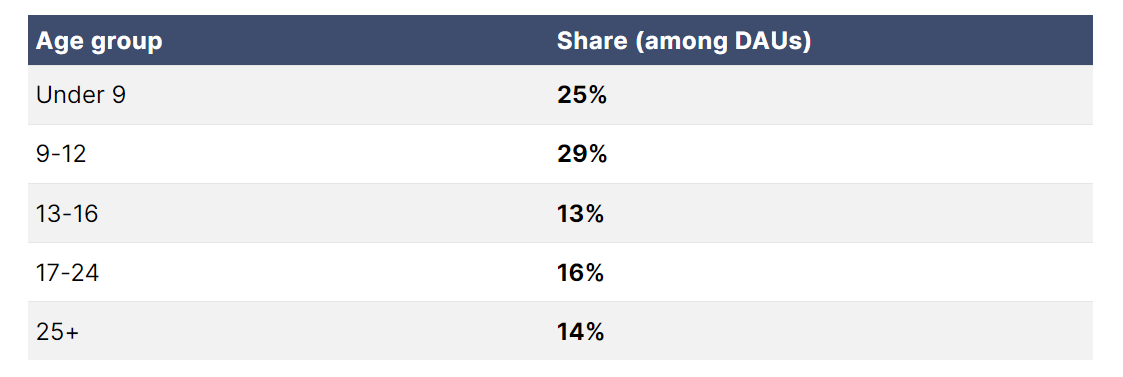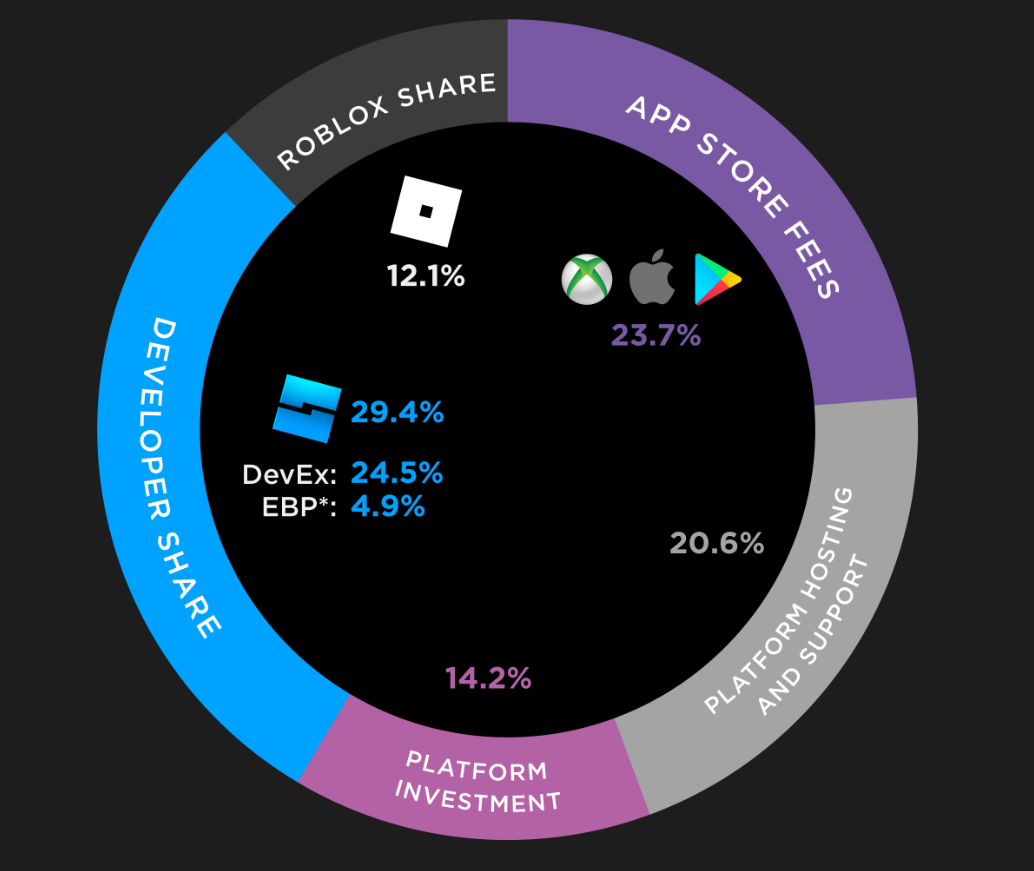Incentivizing Creativity or Exploiting Young Developers? The Roblox Game and Its Ecosystem
Author: Bryant Yang, Investment Analyst at Bridge Point Capital
Roblox is an online game platform and game creation system developed by Roblox Corporation that allows users to program games and play games created by other users. The platform mainly targets the younger generation, with 67% of its users being under 16 and only 14% being over 25. As the most popular gaming platform in the United States and Europe today, Roblox attracts monthly users of 200 million with 20 million games that the company hosts, making itself one of the top five valuable video game companies as of 2021 when Roblox’s IPO last year gave it a valuation of $41.9 billion.
Roblox’s Demographic Distribution 2022
What has separated Roblox from its competitors was that Roblox developed a digital currency Robux within its gaming world for the users to buy clothes and accessories for the characters they played with in the game and pay for access to new games. Game developers, rather than being paid in cash, are compensated with this digital currency as well. In fact, in addition to charging an advertising and licensing fee from its business partners, Roblox largely relied on its players and game developers to create revenues.
Available Data showed that Roblox Corporation takes a 75.5% cut of revenue from any sale in comparison to Valve’s 30% cut on Steam, leaving a very small fraction of profit to the game developers. While Roblox keeps selling the idea that they are a user-oriented company where game developers could possibly “earn serious cash”, there are heated debates on whether Roblox has always been lying and exploiting those younger developers who might have not even graduated from secondary school.
Cash Payout Structure (Source: Roblox.com)
It is admitted that making a game in Roblox is easy but getting the game that you have made noticed by other players and making money from that became very difficult because Roblox only shows thousands of games that are already popular out of its total over 40 million experiences, and as there are no discoverability tools, users are only able to see a tiny selection of the millions of experiences available.
The sarcastic part of the story is that developers could only either advertise their own games through social media platforms or pay Roblox with its virtual currency Robux before you have not even earned a buck from the game you developed. A worse situation happens when you want to convert the digital currency you have made through developing a very popular game into real money as Robux sets a minimum withdrawal amount of 50,000 Robux (around $588 if users buy it), and that 50,000 Robux inexchange for USD would only worth $175.
Roblox’s Developer Exchange Program and Exchange Rate (Source: Roblox.com)
Roblox also deliberately substantially devalued Robux against the real currency to discourage you to withdraw your money, which made the actual return for game developers lower than the company has reported because the majority of Robux currencies never turned into real assets, and instead, they circled back to Roblox, leaving hardworking game developers empty handed.
It then comes to a critical point where people are reconsidering if we should still believe in Roblox's campaign that “from the very beginning, it was about having kids develop games for other kids.” It is our best hope that the capitalist should maintain a moral value alongside its business expansion.




